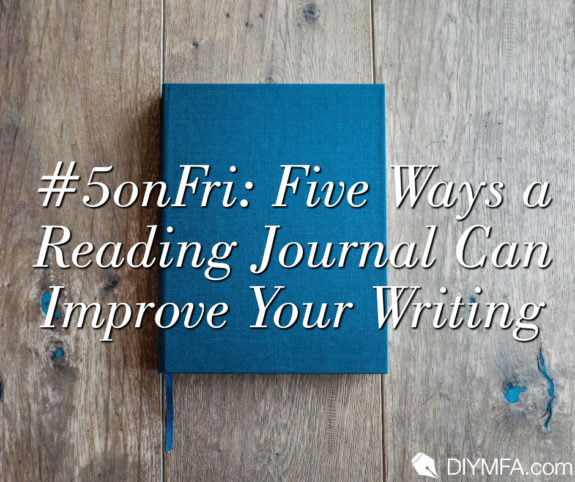Let me confess, I’m a bit of a notebook addict. There’s nothing I love more than a new notebook brimming with blank pages full of potential. At the start of this year, I received a big, beautiful notebook from my mother-in-law, who is an avid reader herself. The day she bought me this notebook, we were walking through an indie bookshop in Austin, Texas, talking about my writing and following my two-year-old son through the colorful shelves of children’s books. As we wandered and talked, it got me thinking. If I really want to write great, I need to read great, but more than that, I need to remember the things I learn from reading. I decided I would fill my new notebook with powerful descriptions of scenery, notes on great dialogue, plot ideas I liked, and villains that sent chills trickling down my spine. I would create a notebook where I could learn from writing masters just by reading their books and taking notes, and in turn, I would become a writing master too.
Oftentimes, we writers don’t make enough time to read, especially from the genres we write for. What we don’t realize is how much that hurts our writing progress. Here are my top five reasons you should start keeping a reading journal today.
1. You’re learning from the pros
When you read, whether you realize it or not, you are analyzing the words on the page, and your brain makes mental notes of things that resonate with you and things that don’t. I’m sure we’ve all read books that struck a chord with us, and I’m even more sure we’ve all read books we loathed (high school required reading, anyone?). If I love a book enough, I’ll even go back and reread it, sometimes several times. Now, imagine reading or rereading a book you love, figuring out why you love it, and recreating that in your own writing!
As you read and start making notes about it in your journal, ask yourself: What is it about this book that makes me love it so much? Is it the action, the character development, the world? How does the author build these elements in his or her book? I know this might feel like a homework assignment, but hear me out, this can be fun. This is an excuse for you to look at the pros, those already published, and glean personalized writing lessons for free (or the cost of the book if you aren’t utilizing your local library). Take advantage of these masters’ works and get journaling.
2. Imitation is the sincerest form of flattery
When I was in middle school, I was fascinated with drawing manga characters. I know: I’m such a geek. I would spend hours copying my favorite drawings, trying to mimic every painstakingly complex detail. I got pretty good at it. You can use this concept in writing too.
In my reading journal, I like to copy down the bare bones structure of powerful scenes and then recreate them in my story. For example, there is a children’s series I love where characters often go through training sequences. In my own novel, I wanted to create a training sequence but didn’t feel confident in how I would accomplish this until I was reading my favorite series and realized that I could build my training sequence action in the same way!
In your journal, imitate your favorite scenes using your characters. Change the setting, characters, etc., and see if you can spark some inspiration for your own story. Disclaimer: do not, however, plagiarize another author’s story.
3. It’s going to make writing a query letter a lot easier
When you write a query letter for your book, you will need to identify your book to the agent in question. In your query, including similar, recently released titles to your book can work to your advantage. Why? Think of it this way, the agent doesn’t know your book like you do. However, they are probably very familiar with what books are circulating the market in your specific genre, especially those that are doing well. If you aren’t reading and studying what came out recently, how will you ever be able to draw an effective comparison to your own novel and create a successful query letter? Odds are, you will struggle a bit and might end up doing a quick Google search and choosing the wrong books. Here’s where your journal comes in.
Use your journal to practice writing blurbs about the book you are reading. You will need to give a strong blurb in your query letter, so it never hurts to have lots of practice. Then, make special note of books that are similar to yours. Is it the fantasy elements? Are the character’s challenges similar?
Not ready to query? That’s fine! You don’t need to wait until you have a finished manuscript to practice your query skills. In fact, I recommend starting now.
4. You learn to write what you love to read
I will preface this point by saying that not everything I enjoy reading is what I write. While I do love writing in different genres, my wheelhouse writing genre is children’s lit. It’s also the genre I read the most from. Why? A creative writing professor of mine once told us how he tried to write fiction for adults, and he never had much success. Several years later, he realized that to him writing for adults sucked. He moved to writing children’s books, and last year, I bought his debut book from Barnes & Noble.
Write what you love to read. Why? Because, my fellow writers, you already have so much knowledge of the genre. Put that genre knowledge to paper in your journal and keep building on it.
5. Journaling keeps your wheels a spinin’
It’s so easy to burn out when writing a book. Sometimes I’m a writing inferno, cracking out thousands of words, and other times, I am the slowest sloth in South America. However, the worst thing that can happen to us as writers is to stop writing altogether. Enter your reading journal.
At DIY MFA, all the content is focused around three basic principles: Write with focus, read with purpose, and build your community. Keeping a reading journal helps you accomplish both writing with focus and reading with purpose, so even if you need to step back from your novel for a while, you can still gain valuable writing practice that will ultimately benefit your bigger project.
Not every book you read and journal about has to directly relate to your manuscript, and honestly, there is a lot of flexibility in what you can put in your reading journal. Whatever you decide to put in your journal, just start today.

Olivia Fisher is a writer and editor who loves to read and write middle grade fiction. When she isn’t imagining living in a treehouse or chasing down her two young boys, she enjoys curling up with a book, writing her next epic adventure, or fighting off the ghosts of the Bermuda Triangle while hauling up the untold treasures and hidden histories of the civilizations deep within its secretive waters. While only some of that is true, she does love animals, babies, and trying to live in the state of child-like wonder that we all secretly, or not so secretly, miss. Follow along with her adventures at https://twitter.com/Livy_Fisher, or hire her for your next writing escapade at https://www.fiverr.com/oliviafisher956?public_mode=true







